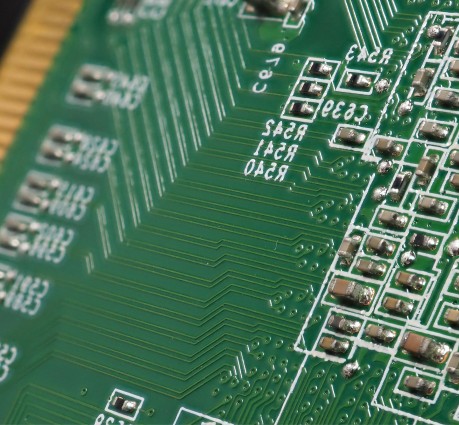The objective of the course is to enhance students' abilities in areas such as creating semiconductor devices and circuits as well as designing systems using embedded components. VLSI Design encompasses the latest advancements in the field, emphasising a hierarchical design approach and practical implementation. M.Tech (Masters of Technology) VLSI Design is a postgraduate programme specifically focused on VLSI Design. It is a two-year course divided into four semesters, with each semester lasting six months. Individuals with an M.Tech. in VLSI Design can pursue career opportunities in both public and private organisations, holding positions such as Design Engineer, Software Engineer, Software Developer, Project Leader, Assistant Professor, System Engineer, Project Coordinator, and more.
Duration of programme
Level of Study

Advanced VLSI Design: Advanced concepts and techniques for integrated circuit design.
VLSI Design Methodologies: Hierarchical design methodologies and CAD tools.
VLSI Testing and Verification: Techniques for testing and verifying VLSI circuits.
Physical Design and Layout: Floorplanning, placement, routing, and timing optimization.
PSO1- Be able to analyse, design, and implement Analogue, digital, and mixed-signal circuits and real-time embedded systems.
PSO2- Have in-depth knowledge and capability to use industry standard tools in the design and implementation of VLSI and real-time Embedded Systems.
PSO3- Be able to undertake research projects in related domains of VLSI and Embedded systems.
PSO4- Possess the capability to communicate effectively and work as a team.
The Educational Outcomes of the M. Tech. Programme are:
PEO1- To prepare graduates who will be successful professionals in industry, government, academia, research, entrepreneurial pursuits, and consulting firms.
PEO2- To prepare graduates who will contribute to society as educated, expressive, ethical, and responsible citizens with proven expertise.
PEO3- To prepare graduates who will achieve peer recognition as individuals or in teams through the demonstration of good analytical, research, design, and implementation skills.
PEO4- To prepare graduates who will thrive to pursue lifelong reflective learning to fulfil their goals.
Engineering programmes have been designed to prepare graduates for attaining the following programme outcomes:
PO1- An ability to apply knowledge of mathematics, science, and engineering in practise.
PO2- An ability to identify, critically analyse, formulate, and solve engineering problems with comprehensive knowledge in the area of specialisation.
PO3- An ability to select modern engineering tools and techniques and use them with dexterity.
PO4- An ability to design a system and process to meet desired needs within realistic constraints such as health, safety, security, and manufacturability.
PO5- An ability to contribute through research and innovation to solving engineering problems.
PO6- An ability to devise and conduct experiments, interpret data, and provide well-informed conclusions.
PO7- An ability to understand the impact of engineering solutions in a contemporary, global, economic, environmental, and societal context for sustainable development.
PO8- An ability to function professionally with ethical responsibility as an individual as well as in multidisciplinary teams with a positive attitude.
PO9- An ability to communicate effectively.
PO10- An ability to appreciate the importance of goal setting and to recognise the need for lifelong reflective learning.
10+2 exams with the compulsory subjects as Physics, Chemistry, and Maths with a minimum of 55% marks in the best of 5 subjects.
Bachelor's degree in VLSI Design with a minimum of 50% .